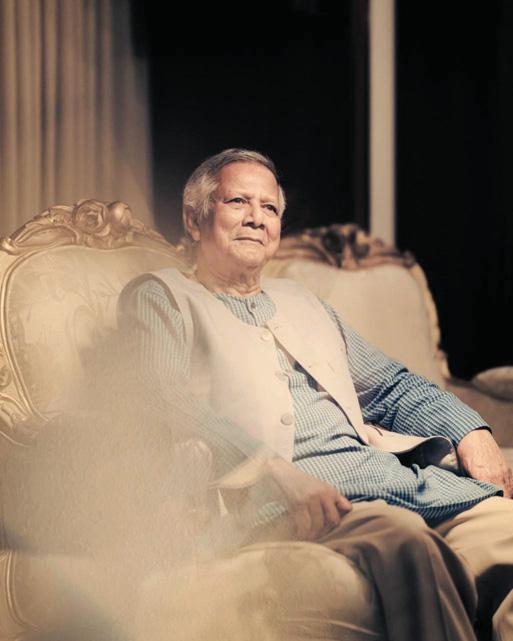Some of the language doesn't sit easily with 84-year-old Muhammad Yunus, though he can forgive the students' exuberance. "These young minds are full of ideas and ambitions and aspirations," he tells TIME with a chuckle. "They depicted their future in those murals, and it's something much greater than Bangladesh has ever seen."
The task of turning those aspirations into reality now falls to Yunus, who was tapped to serve as "chief adviser" to the interim government-for all intents and purposes, Bangladesh's new leader. His job is to shepherd South Asia's second biggest economy, a nation of over 170 million people, toward fresh elections. Meanwhile, a six-pronged reform process is under way, focusing on the election system, police administration, judiciary, anticorruption commission, public administration, and national constitution.
Around 1,500 people were killed in clashes between protesters and security forces in July and August, amid unrest that began with peaceful demonstrations against employment quotas for regime loyalists. The government's heavy-handed response ignited a powder keg of rage against inequality and political repression that brought tens of thousands of mothers and daughters, bankers and beggars, united onto the street.
The last the world saw of Hasina was as she was being bundled into a helicopter with protesters closing in. As intruders ransacked her official residence, carrying away keepsakes, she floated through the smoggy skies to India, from whence she rails against her ouster. Yunus revealed that he would be seeking her extradition after prosecutors issued a warrant for her part in the violence, though few believe Indian PM Narendra Modi would comply.
"Not only is she being hosted by India, the worst part is that she's talking, which causes a lot of problems for us," he says. "It makes people very unhappy to hear that voice."
YUNUS GREW TO GLOBAL RENOWN in the 1970s for pioneering poverty-reducing microcredit. What began with a single $5 loan to a...


